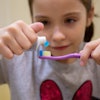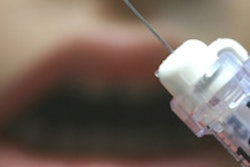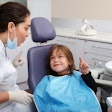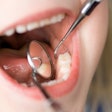Oral viscous lidocaine 2% solution should not be used to treat infants and children with teething pain, according to a safety alert issued on Thursday by the U.S. Food and Drug Administration (FDA).
"Oral viscous lidocaine solution is not approved to treat teething pain, and use in infants and young children can cause serious harm, including death," the FDA stated in its announcement.
The agency has reviewed 22 reports of serious adverse reactions this year, including deaths, in infants and young children who were given oral viscous lidocaine 2% solution for the treatment of mouth pain, including teething and stomatitis, or who had accidental ingestions.
"Topical pain relievers and medications that are rubbed on the gums are not necessary or even useful because they wash out of the baby's mouth within minutes," the FDA warned. "When too much viscous lidocaine is given to infants and young children or they accidentally swallow too much, it can result in seizures, severe brain injury, and problems with the heart. Cases of overdose due to wrong dosing or accidental ingestion have resulted in infants and children being hospitalized or dying."
The agency is requiring that a new boxed warning be added to the prescribing information to highlight the risk.
The FDA asked healthcare professionals not to prescribe or recommend oral viscous lidocaine 2% for teething pain. It advises telling parents and caregivers to follow the American Academy of Pediatrics' recommendations for treating teething pain: Use a teething ring chilled in the refrigerator (not frozen), or gently rub or massage the child's gums with your finger to relieve the symptoms.
In 2011, the FDA warned that using over-the-counter benzocaine gels for teething or mouth pain can cause a rare but serious condition called methemoglobinemia.



















